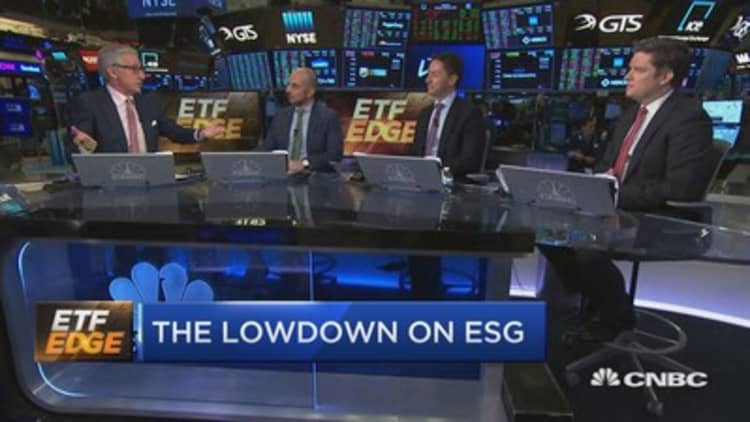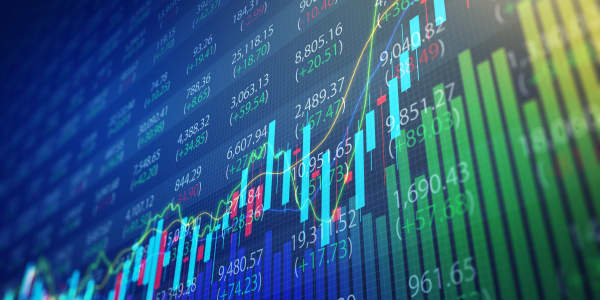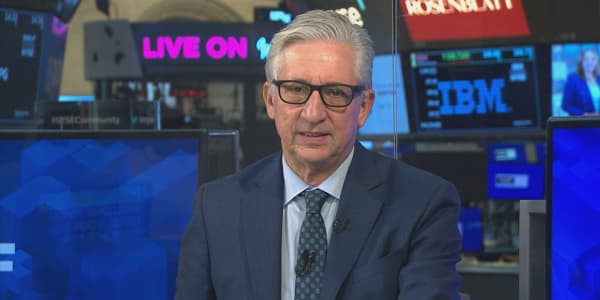
When you buy into an environmentally focused ETF, you might not be expecting to own a stock such as Procter & Gamble.
But the inclusion of the Charmin parent — one of the world's biggest paper manufacturers — in exchange-traded funds promoting ESG (environmental, social and governance) values is something of an industry standard, issuers tell CNBC's "ETF Edge."
DWS Group's Luke Oliver, whose firm launched the Xtrackers MSCI USA ESG Leaders Equity ETF (USSG) in March 2019, said the reason is partly tied to performance.
"We want to give people the performance and risk profile that they're used to," Oliver, who is head of index investing for the Americas at DWS, said Monday on "ETF Edge." "To do that, you need to have representation from all of these industries, all of these subsectors."
ESG criteria typically range from companies' impacts on the environment to their relationships with employees and key stakeholders to other characteristics surrounding leadership, pay and shareholder rights. MSCI uses a seven-point scale to score large- and mid-cap companies for their ESG compliance. Those it sees as having "high potential" of making a negative ESG impact (entities involved in nuclear weapon or tobacco production, for example) are automatically excluded.
So far, those factors have paved the way for companies such as Procter & Gamble and Coca-Cola, each of which account for roughly 2% and 1.5% of USSG's portfolio, respectively, to be included in ESG funds despite some groups' environmental concerns about the century-old giants.
"The idea isn't to cut out every company that possibly has something that's not ESG about it, but to actually give you a benchmark-like return while reflecting your values," Oliver said. "You're getting the market you've always invested in, but you've just tweaked it down to companies that have this strong value."
That idea appears to be paying off. As of Jan. 8, USSG had amassed over $1.7 billion in total net assets. Its BlackRock counterpart, the iShares ESG MSCI USA Leaders ETF (SUSL), has accrued $1.85 billion since its May 2019 launch.
Armando Senra, head of iShares Americas at BlackRock, called last year's rush to funds like USSG and SUSL an "inflection point" for ESG investing.
"It's no longer compounding pennies. This is actually growing. There's flows," he said in the same "ETF Edge" interview.
ESG has indeed gained traction as an investing concept in the last several years, with global sustainable investing topping $30 trillion in assets in 2018, according to the Global Sustainable Investment Alliance. Assets in U.S.-based sustainable funds grew to $12 trillion that year, up from $8.7 trillion in 2016.
But, as it stands, the space will have to define itself more clearly in 2020 if it wants to continue attracting flows, Senra said.
"For ESG to go mainstream, we have to double down not only on product innovation and the products that we build to be able to offer the access and the product set that allows people to build better portfolios, but also the education to investors," Senra said.
"What is it, what is ESG, how to invest in ESG, what are the different vehicles? Some vehicles are like the ones we're discussing, where you're looking at the highest-rated ESG companies within one sector," he said. "There's going to be other products that exclude completely specific sectors. Like, you may exclude fossil fuels. That's for a different type of investment. So, we need to double down on the education to the end investor."
USSG and SUSL both hit new all-time highs on Thursday.
Procter & Gamble did not immediately respond to CNBC's request for comment.
In an email to CNBC, Scott Leith, Coca-Cola's vice president of global external and financial communications, wrote, "The Coca-Cola Company has a long history of sustainability-focused investments, benefiting both our business and the communities in which we operate. Since 2015, we have returned to communities and nature more water than we use to produce our beverages on an annual basis. Furthermore, our most recent Business & Sustainability Report (https://www.coca-colacompany.com/content/dam/journey/us/en/policies/pdf/safety-health/coca-cola-business-and-sustainability-report-2018.pdf) details our progress and investments across a spectrum of activities, such as packaging, climate and women's economic empowerment, which are creating shared value for communities in which we operate, as well as the Coca-Cola system."
The way Coca-Cola quantifies its water-related sustainability efforts was questioned in a sweeping 2018 report from The Verge.






